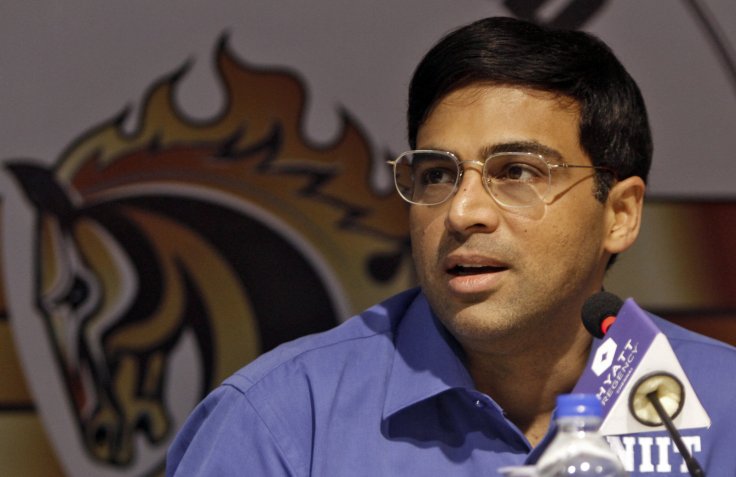
A rejig in the rules for the selection of the national chess team by the All India Chess Federation (AICF) coupled with an attitudinal change in offering facilities to the team members has enabled India to field its strongest team for the 2018 Olympiad to be held in Batumi in Georgia this September, said a senior AICF official.
These changes have surprised and piqued many chess players and enthusiasts in the country.
The five-member Indian men's team at the Olympiad will be spearheaded by five-time World Champion and presently the World No.10 Grand Master (GM) Viswanathan Anand (ELO rating of 2,776). The other members are World No.26 GM P. Harikrishna (ELO 2,731) and World No.34 GM Vidit Santosh Gujrathi (ELO 2,723).
The fourth and fifth members of team would be selected from World No.77 GM K. Sasikiran (ELO 2,671), GM Surya Shekhar Ganguly (ELO 2,657), AGM B. Adhiban (ELO 2,650) and GM S.P. Sethuraman (ELO 2,649) based on their rating at the cut-off date.
On a rough calculation, the average rating of the Indian team will be around 2,700.
"The Indian men's team for this Olympiad will be one of the strongest teams in the tournament," AICF Secretary Bharat Singh Chauhan told IANS.
India this time around has added 'Mr. Universe' muscle at the top board by roping in the legendary Anand and also added muscle at the bottom by changing the selection rule.
An AICF sub-committee headed by its President P.R. Venketrama Raja decided to select the Indian men's and women's team for Olympiad/World/Asian Team Championships based on the player's international rating.
Though the AICF has been selecting the Indian team based on their global rating, lower rated players gained their place due to the old rules -- like the national champion being the default member.
"Indian chess players have grown stronger now. The old rule has resulted in creating weak links in the team which we have decided to rectify," Chauhan said.
Several GMs and chess enthusiasts have been raising these issues for the past couple of years internally and also through IANS.
"After becoming AICF Secretary, Chauhan interacted with the players and sought their views on various aspects to take Indian chess forward and the results of which we are seeing now," a senior GM preferring anonymity told IANS.
But what is the logic for changing the team selection rules?
"With major top ranked players avoiding the national championship, the national champion will generally be a low rated player. At the tough Olympiad this will be a major weak link and the burden has to be borne by the top players," a senior chess player told IANS.
A team with higher average ELO rating has the advantage of being seeded high and facing weaker opponents in the initial rounds.
"Now the opponent teams will have to discount a win on the top board against Anand and have to slog it out in the remaining three boards against players figuring in the top 100 in the world," R.R. Vasudevan, International Chess Arbiter, elaborated further.
"With three players in the top 50 in the World and the remaining with a rating of over 2,600, the psychological advantage for the Indian team is huge," Vasudevan said.
Rule change apart, the AICF had decided to hold the training camps for the Olympiad team in five-star hotels -- the first camp is underway now in Delhi.
There have been several instances when players boycotted or walked out of the major domestic tournaments owing to bad venues.
The second camp will also be held in a similar hotel and the third camp over seven days will be held in Georgia, ahead of the Olympiad.
A training camp for the Olympiad team in a foreign country ahead of the event is something really rare as far as Indian chess is concerned, according to several chess players, who spoke to IANS.
"The Indian players have now grown in stature and we have to offer facilities to match their international stature. Further the camp in Georgia will enable the Indian players to acclimatise to the local conditions," Chauhan said.
Queried about hiring a foreign GM as the team coach and the offer of incentives if there is a podium finish, Chauhan said: "The Indian players are strong and a foreign coach may not add much value. We are planning to offer incentives involving the government and corporates."
The Indian men's Olympiad team that won the bronze medal in 2014 did not get any financial incentives either from the central or the state governments.
The Indian women's team for the Olympiad will have a foreign coach.
Putting at rest all speculation, Chauhan said the rule change and better facilities have nothing to do with Anand deciding to play in the Olympiad.
"These were decided well ahead of 48-year-old Anand giving his consent to play for India," Chauhan said. (IANS)









